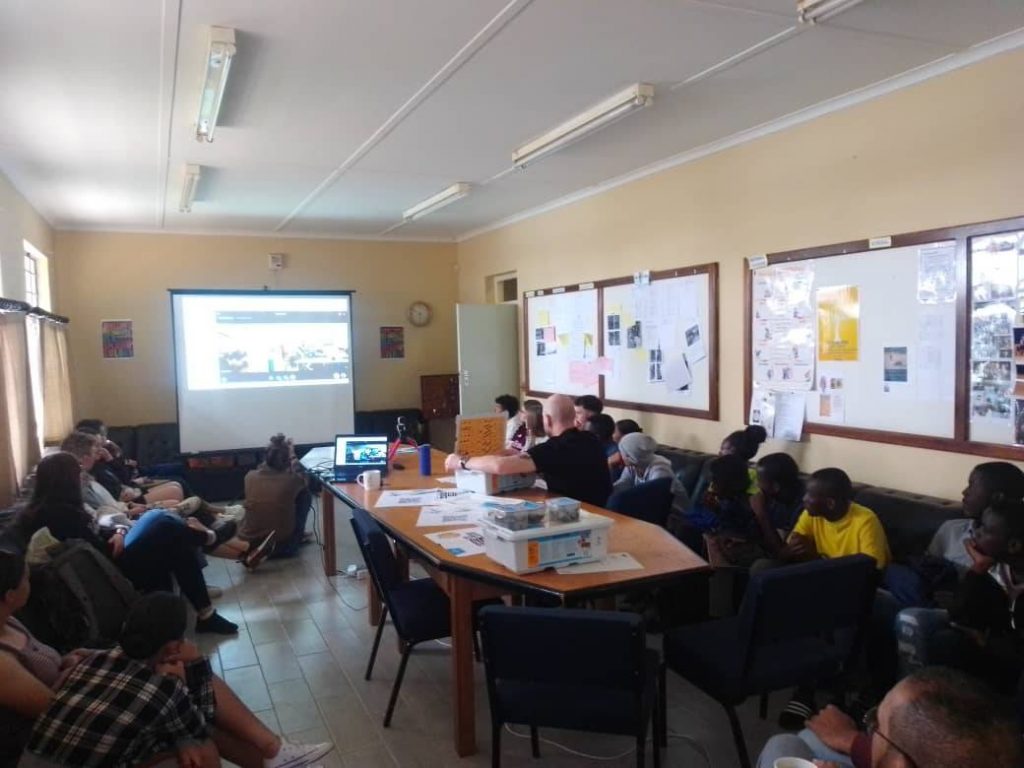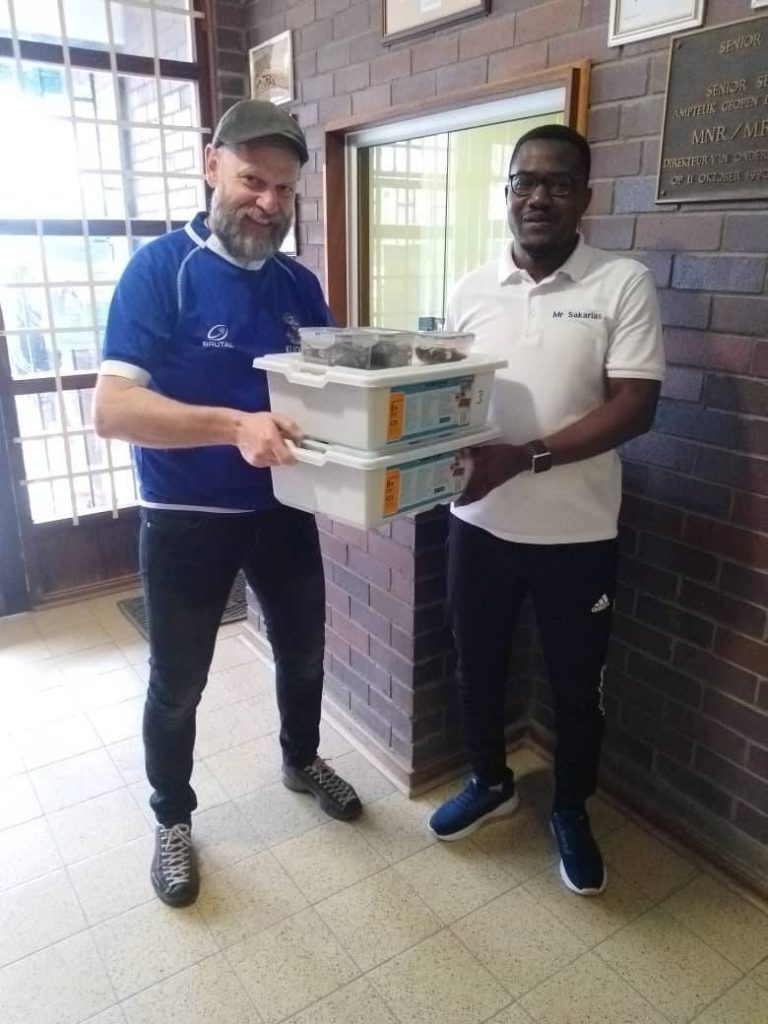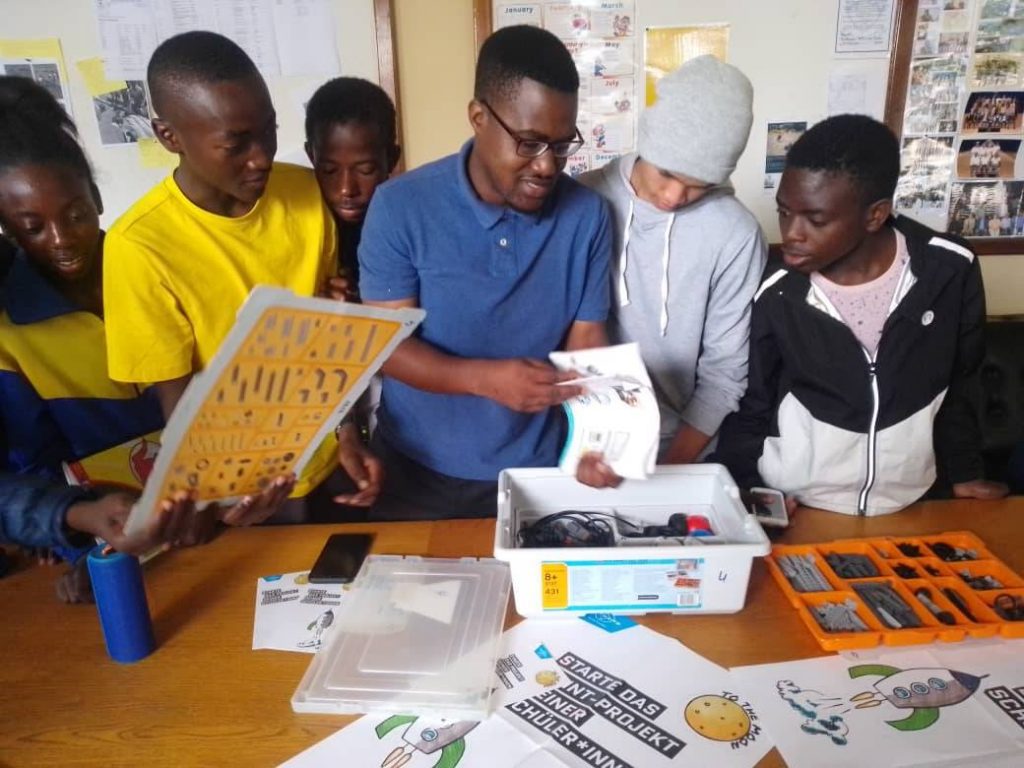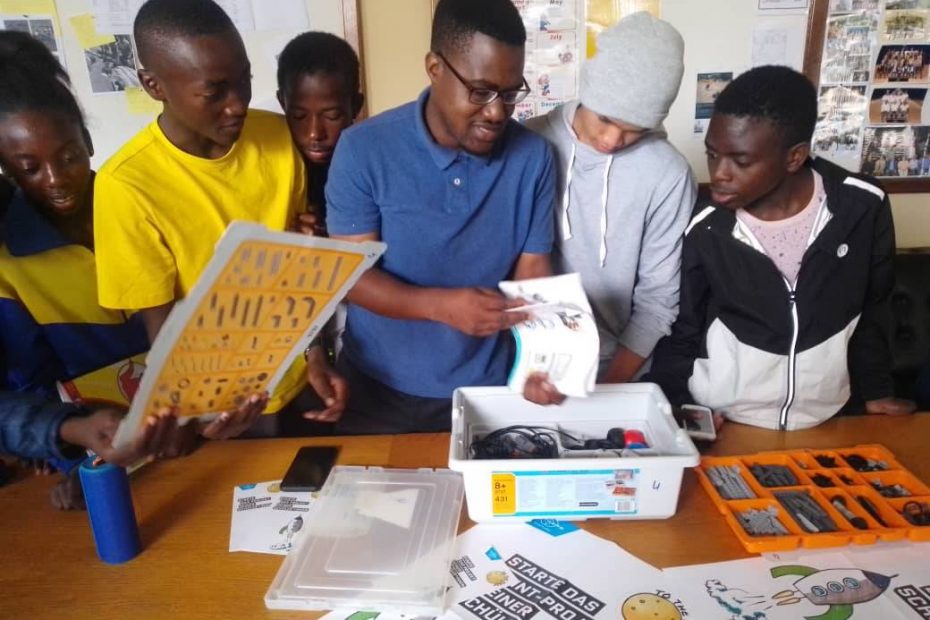Manuscript digitalization underway – on-site robotics school project launched in Namibia
The donations collected by the project Tribute to Herbert W. Franke of the art meets science – Foundation Herbert W. Franke will be used for two projects: on the one hand the digitalization of the manuscripts of Herbert W. Franke, on the other hand – together with the Ruetgers Foundation – the acquisition of robotics boxes for schoolchildren in Namibia together with the supported development of a suitable curriculum for this.
ZKM project automated manuscript digitalization in progress
Manuscript digitalization has been underway for several weeks. The automated capture should be completed by the end of May. After that, all texts will go through a manual quality check at the Center for Art and Media in Karlsruhe. Later this year, they will then be publicly available with full text search and indexing as part of the ZKM archive of Herbert W. Franke.
Launch Day of the Robotics Project for Namibian Pupils
The pilot of the second project to promote computer science education for schoolchildren in Namibia began in March at the government-run Duine Secondary School in Walvis Bay. The city has a population of over 60,000 and is Namibia’s largest port city. The government-run Duine Secondary School is open to all young people. Four robotics kits have now been handed over there in advance.






The project is supported by the German-Namibian School Network. A partnership between this school and the Euregio comprehensive school in Herne, which has received an award from UNESCO, has already existed for several years. Thomas Worringer, the head of the network and a teacher at the Euregio: “So far, we have already initiated the construction of an agricultural garden on site and improved the drinking water supply at the school. Now the school can also contribute to reducing the use of disposable plastic bottles. Thanks to the donation from the Herbert W. Franke Foundation, we have now been able to establish a new project for teaching computer science.” The German school is supporting Namibian mathematics teacher Jesaya Sakarias in setting up a suitable lesson plan for teaching robotics. The experience gained from this pilot project will be used for a planned broader roll out in Namibian schools.
Duine Secondary School is predestined for the start of the project, as it has had a computer club for some time – initiated by the local math and computer science teacher – in which interested young people from all classes meet twice a week. But Lego robotics kits, which are very popular in schools around the world, are in short supply throughout Africa. Although the computer club is already busy programming, it has not yet been possible to do any robotics. This is because it is not at all possible to purchase such boxes in Namibia, as Lego does not offer them in this national market. The great joy of the twenty or so students can also be read from the faces of the photos of them reading out the two robotics boxes. They were handed over by the delegation from the partner institution during their visit in March. Thomas Worringer knows that they will be put to the best possible use there.
“The students, who are mainly from grades 10 and 11, are all highly motivated. Already these two robotics boxes that we handed over at the on-site project launch, each of which several people can work on, have been invaluable to them.” More systems have not yet been purchased for the project, as Lego will unveil a new system based on a revised programming language in the coming weeks. As soon as this model is available on the market, our Namibia project will send numerous boxes on their way to Namibia.
Negotiations have also begun with several other government schools in Namibia that are qualified to offer suitable computer science instruction.

